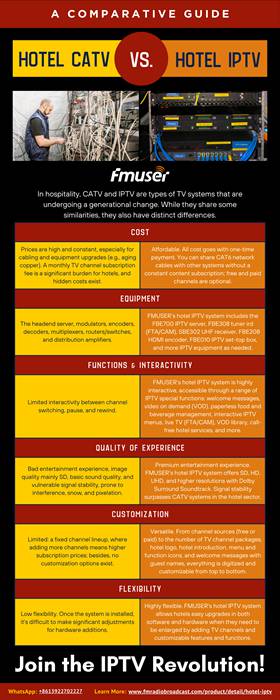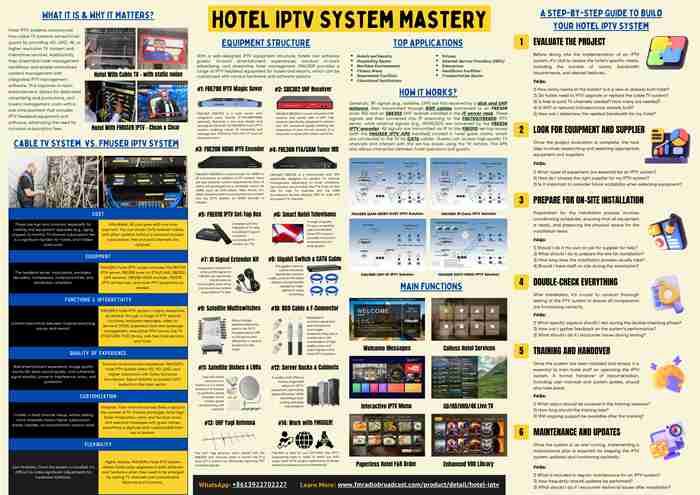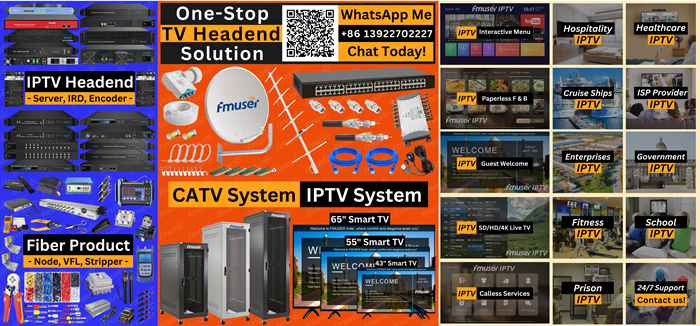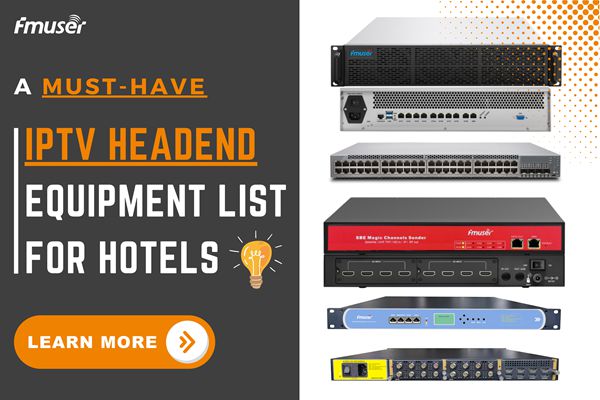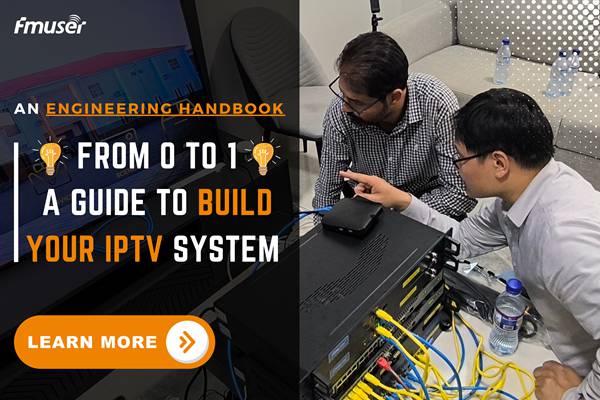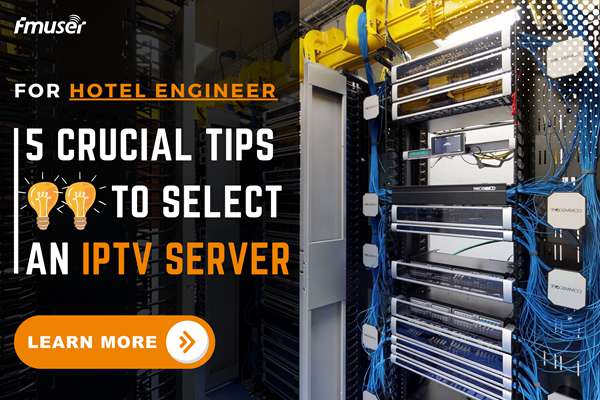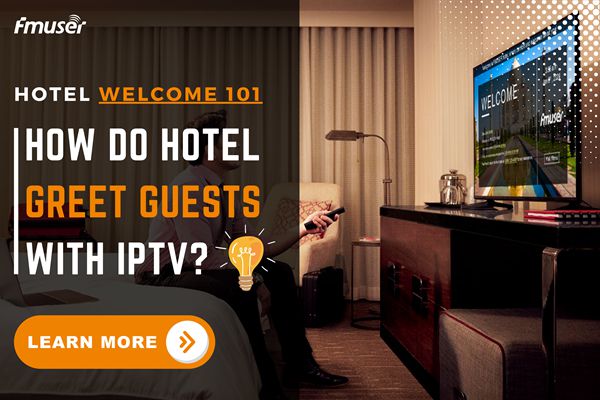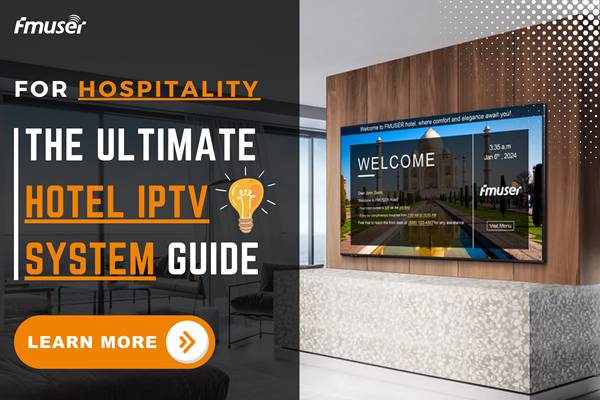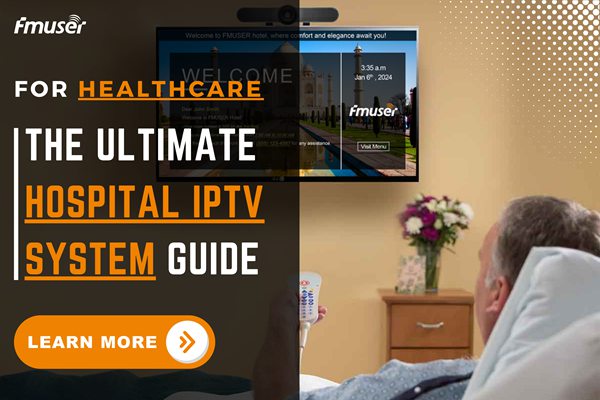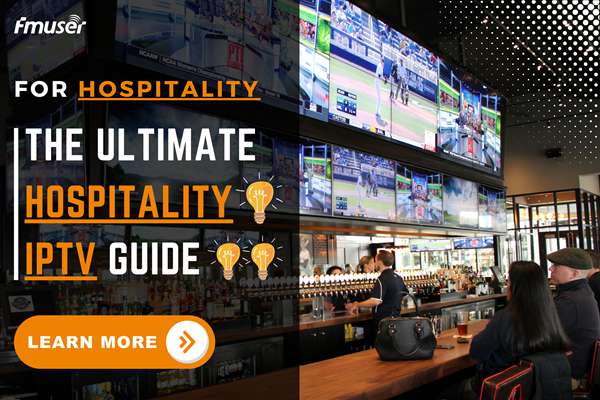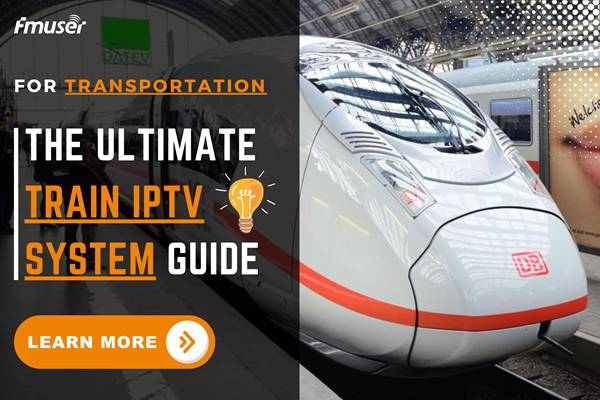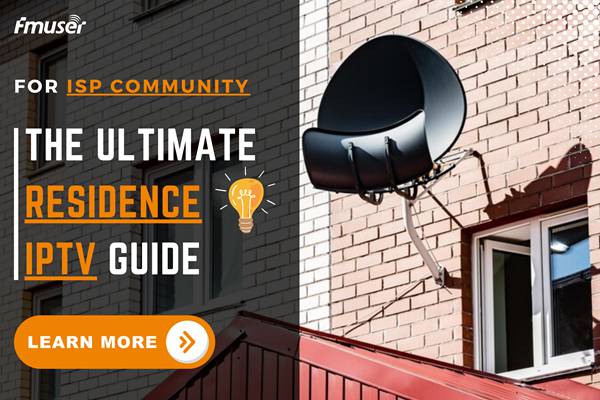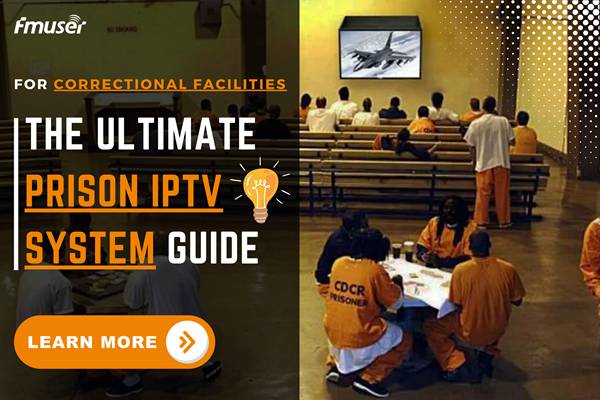
Hot tag
Popular search
Navigating Hotel TV Systems: IPTV vs. Cable Explained | FMUSER
In recent years, the landscape of hotel entertainment has undergone a significant transformation, largely driven by the rise of IPTV technology. For those unfamiliar, IPTV (Internet Protocol Television) delivers television content through the internet rather than traditional satellite or cable systems. As hotels look to enhance guest experiences and streamline operations, they are increasingly faced with the crucial decision of choosing the right hotel TV system.

The allure of IPTV is undeniable. It offers a range of features that can elevate the guest experience, from on-demand movies to interactive services. However, this has led many hotels and system integrators to seek resources that help them compare IPTV with the more established cable TV systems. With the market evolving so rapidly, understanding the key differences between these two technologies has become essential for hotel management.
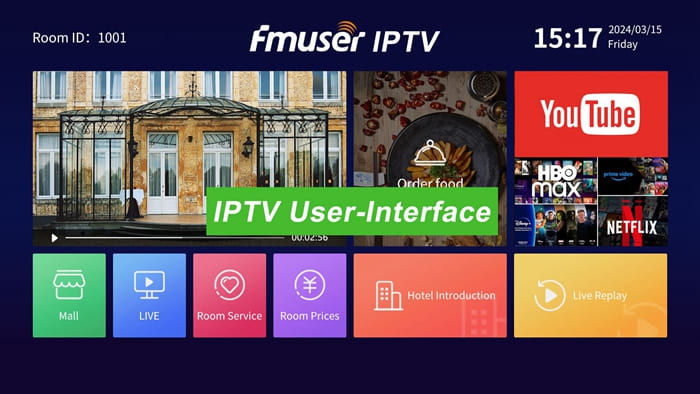
Once a hotel makes the decision to implement a TV system, switching from one format to another is not a simple task. Although there are similarities, IPTV and cable TV are fundamentally different in how they operate and the infrastructure they require. This means that hotels must carefully evaluate their options, as what might seem like an easy transition can quickly become a logistical challenge.
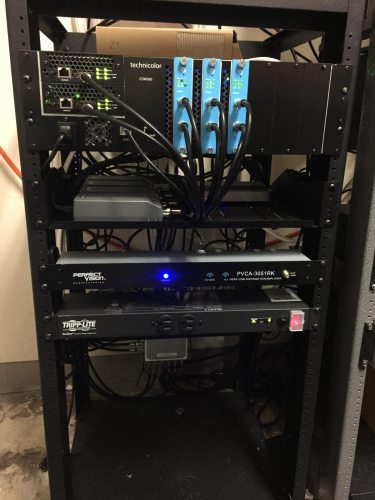 |
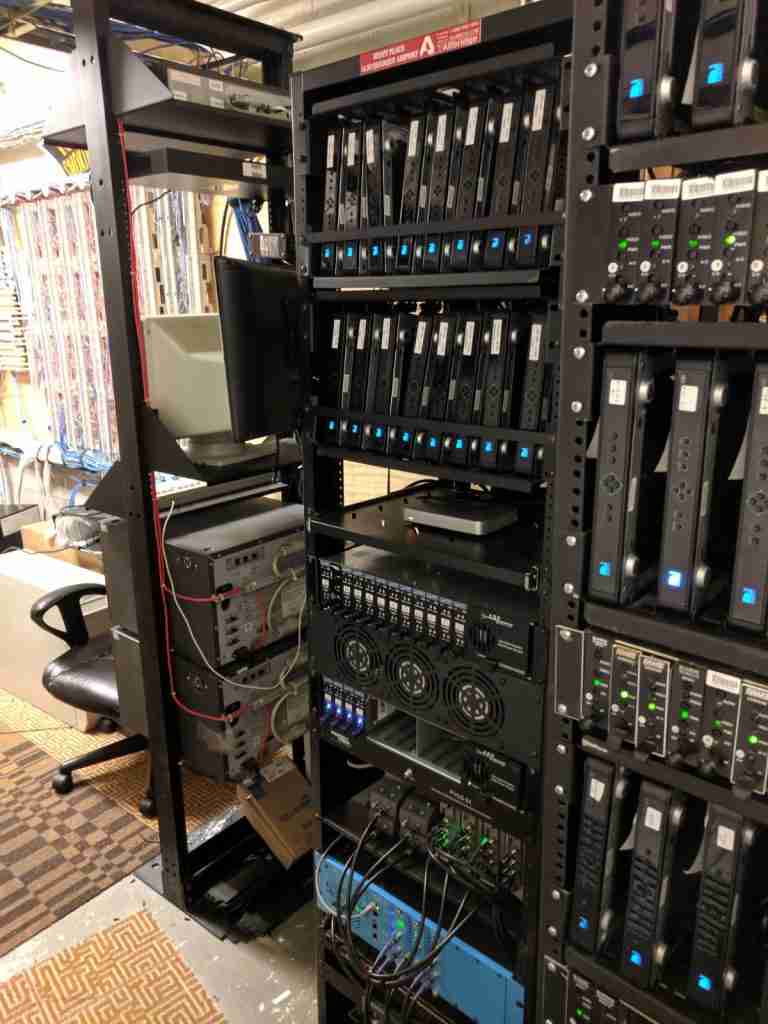 |
Cable TV, often seen as the "previous generation" of television technology, has been the go-to choice for hotels for decades, this includes analog TV system and DVB TV system. However, as IPTV emerges as the "next generation" solution, many hotels find themselves at a crossroads.
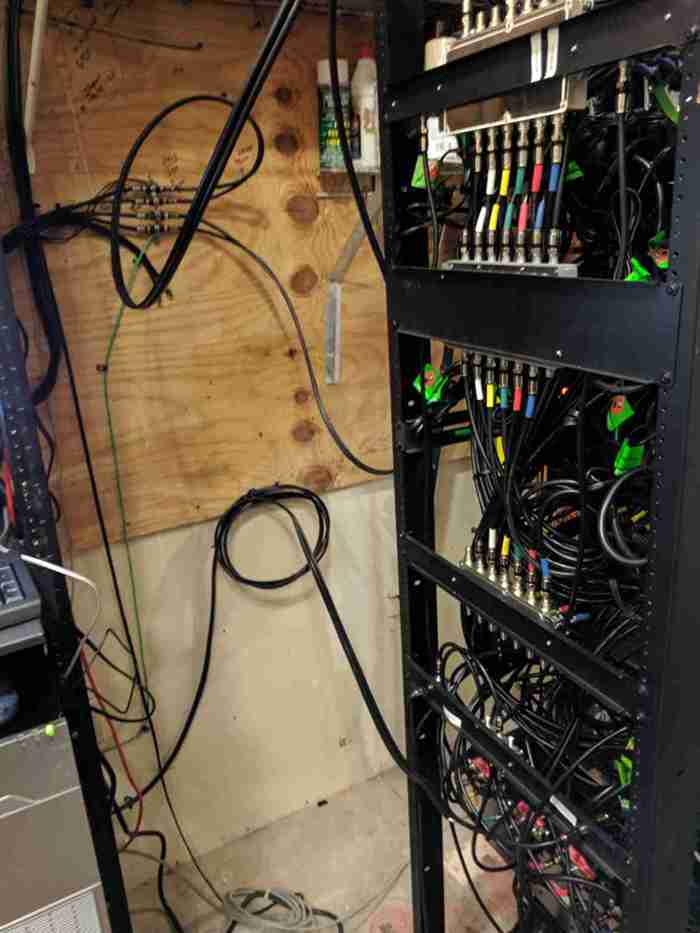 |
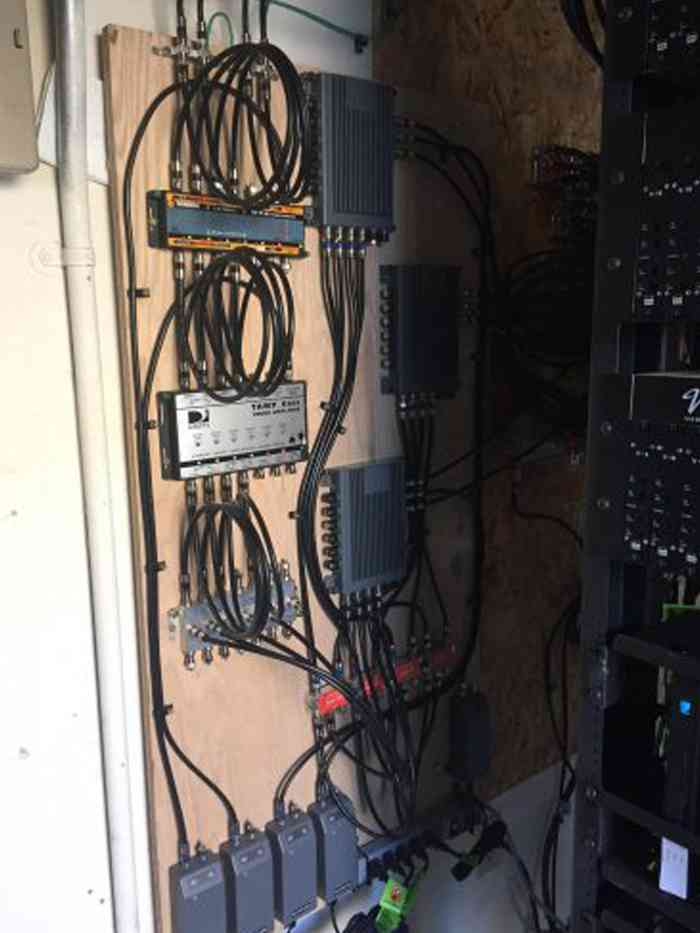 |
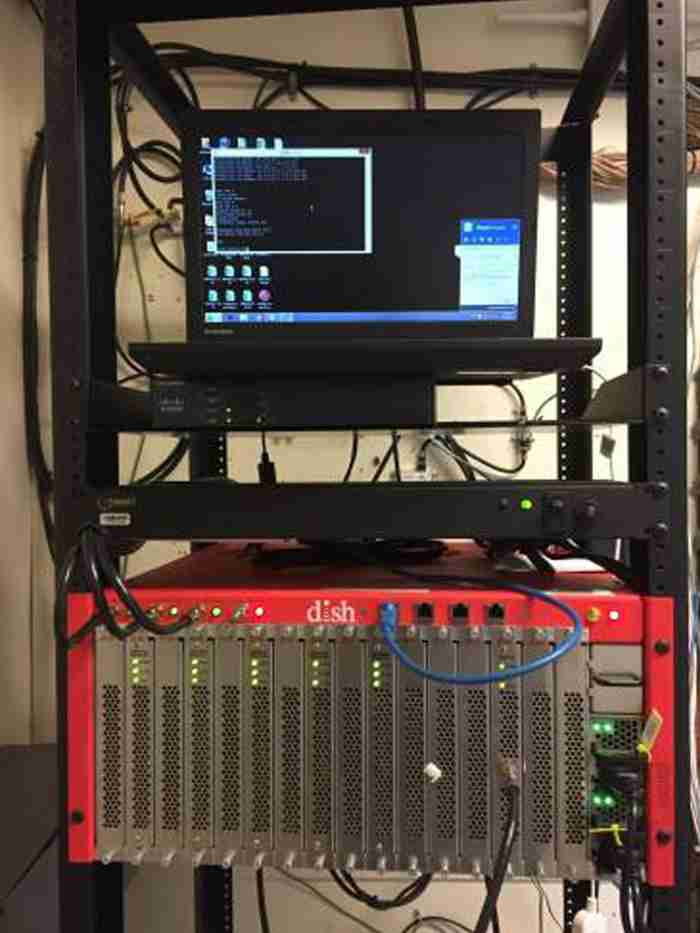 |
The reality is that hotels cannot run both systems simultaneously without significant additional infrastructure and costs. This makes the choice between IPTV and cable TV not just a technical decision but a strategic one that can impact guest satisfaction and operational efficiency.
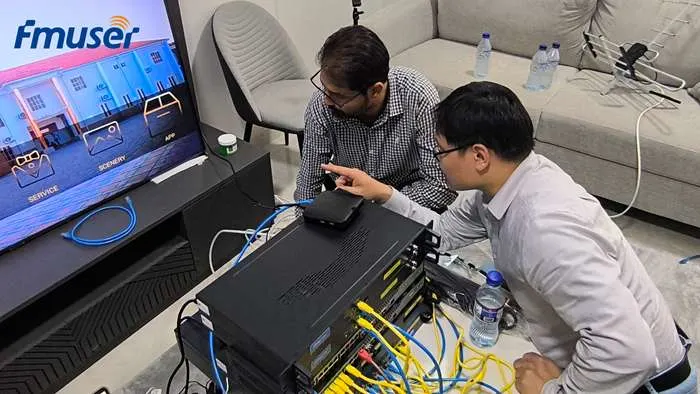
As we navigate through the details of these two technologies in the following sections, we will delve deeper into their definitions, cost considerations, hardware requirements, functionalities, and the flexibility each offers. Understanding these aspects will help hotel operators determine the best path forward for enhancing their guest experience and staying competitive in an increasingly digital world.
What to Look for
In the rapidly evolving hospitality landscape, knowing the ins and outs of IPTV and cable TV can empower hotel operators to make informed decisions. Stakeholders who concentrate on hospitality include:
1) Hoteliers
Whether managing many hotels of various sizes and star levels or a small hotel with just a few rooms, hoteliers will benefit from learning to compare cable TV systems and IPTV.

They are responsible for making vital decisions about whether to turn to IPTV or stick with cable TV. Their decisions will have a significant impact on the future development of their hotels. Especially for small hoteliers, once a decision is made, it is hard to switch due to budget constraints.
2) Hotel Engineers
These individuals are responsible for the engineering of TV systems within hotels. They need to communicate with TV system suppliers, whether for cable or IPTV. Their duties range from purchasing to installation and future maintenance.

They must report to their supervisors about any problems during this process. For example, if issues arise during the installation of the TV system, they may face penalties or termination if the problems are severe. Learning the differences can increase their competitiveness and skills for future engineering work.
3) System Integrators
Traditionally responsible for cable TV systems in hotels, these professionals need to expand their knowledge as IPTV systems rise. They must persuade hoteliers to shift from cable to IPTV or to remain with cable TV.

To do so, they need to understand the differences between cable TV and IPTV, which will provide them with solid reasons to convince their customers considering IPTV systems. They need to foster trust, not just with their clients but also within themselves. If there are transitions or upgrades for hotels, well-trained integrators can earn more by leveraging their installation and knowledge base.
4) Investors
For investors, whether from local or overseas markets, there is a new business opportunity as IPTV systems are actually on the rise.

Learning the differences between cable and IPTV is essential for capturing marketing opportunities. This could bring significant benefits if they make the right investments. Obviously, IPTV represents the next-generation TV system aimed at replacing traditional cable TV systems in hotels, and investors should seize this opportunity.
What is Cable TV?
A hotel cable TV system, often referred to as a hotel CATV system, is a traditional method of delivering television programming that relies on coaxial or fiber-optic cables to transmit content directly to guest rooms.
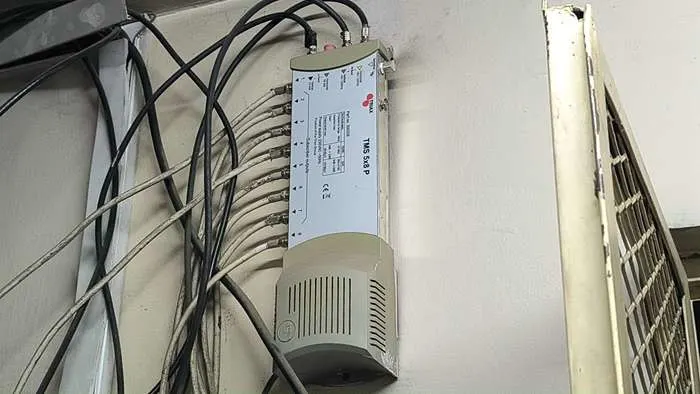 |
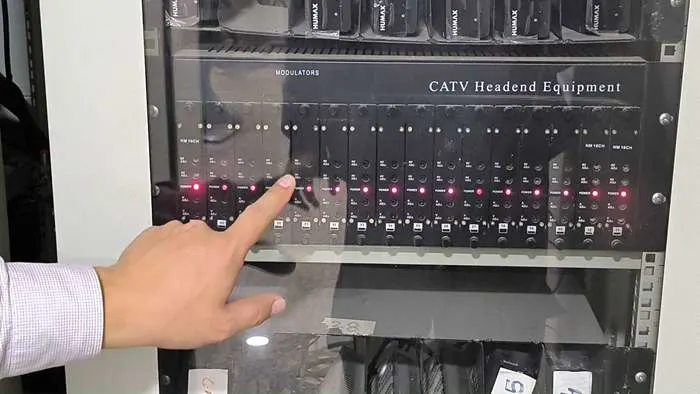 |
For decades, this system has served as the backbone of hotel entertainment, allowing guests to access a selection of pre-defined channels through set-top boxes. While it provides a range of standard programming along with a few premium channels, the interactivity of cable TV systems is limited compared to modern alternatives like IPTV.
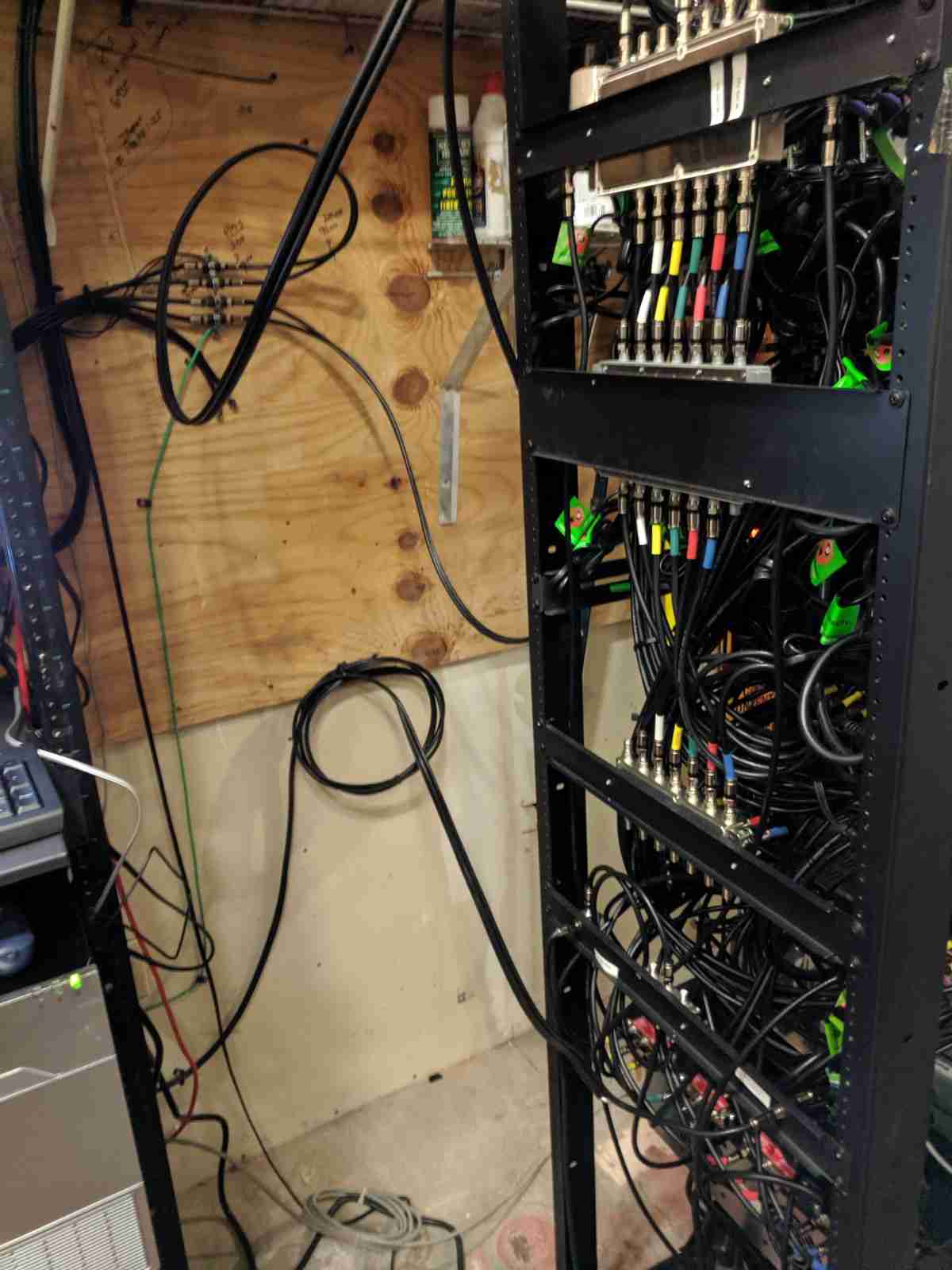 |
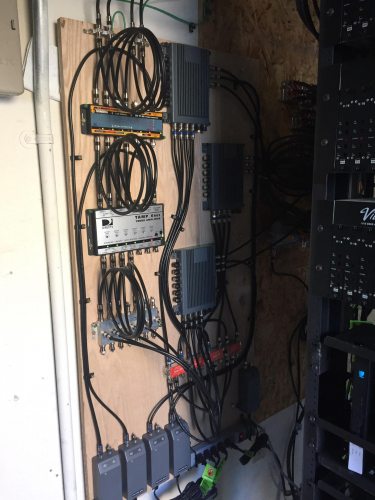 |
Despite various upgrades over the years, the fundamental structure of cable TV has remained relatively unchanged, focusing primarily on delivering content via physical cables. As hotels continue to seek ways to enhance guest experiences, the limitations of cable TV systems may prompt a shift towards more interactive and flexible solutions.
What is IPTV?
A hotel IPTV system, or a hotel interactive TV system, is a TV system that consists of IPTV headend equipment, aiming to provide robust live TV content from various sources such as satellite, UHF, HDMI, etc., along with a series of interactive functions (e.g., hotel introduction, digitalized hotel services, etc.) for hotel guests' experience and efficient hotel management.
Depending on different suppliers, an IPTV system can either be based on IPTV middleware, which relies heavily on the internet, or on hardware IPTV equipment, which doesn't require any internet connection at all. For the former type, typical suppliers include LG and Samsung; these IPTV systems are often bundled with their branded TV sets, which can be pricey and offer fewer customization options. The other type of IPTV system is associated with brands like FMUSER; I will take the FMUSER hotel IPTV system as an example in the following content.
With an emphasis on interactivity, hotel IPTV systems enable guests to engage with a variety of services, including video on demand (VOD) and customized hotel information, thus creating a more personalized stay.

As the hospitality industry evolves, these IPTV systems have become essential tools for hotels looking to improve guest satisfaction, streamline operations, and stay competitive in a tech-driven market. By integrating entertainment with hotel services, a hotel IPTV system not only meets the expectations of today's travelers but also positions hotels for future growth and adaptability.
Interested in More? Contact us Here!
A Comparison Breakdown
To be straightforward, here is a breakdown of the comparison between cable TV systems and IPTV systems in the hotel sector. If you want to dive into the details, keep reading! :)
| Feature | Cable TV System | Hotel IPTV Solution | Comparative Chart |
|---|---|---|---|
| Images | 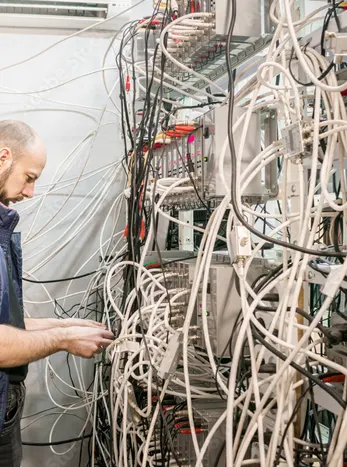 |
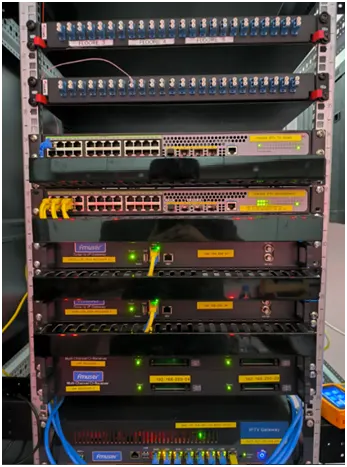 |
Clike here to download full images. Follow us on Pinterest. Weekly Updates! |
| Interactivity | Limited; only channel switching | Enhanced; includes VOD, hotel info, dining/shopping, music channels, scrolling text, etc. | |
| Cabling Costs | High; coaxial cable required | Lower; can share CAT6 network cables with other systems | |
| Multi-Service Operation | Restricted; limited bandwidth for HD or multiple streams | Supports; simultaneous viewing of multiple HD channels & other interactive functions | |
| Encryption & Access Control | Limited; via CA cards | Advanced; multi-layered user management via web interface, better content protection | |
| Image Quality | Standard; mainly SD | High; including HD and UHD options | |
| Sound Quality | Basic; can enhance with external audio equipment | Superior; Dolby & surround sound support | |
| Signal Stability | Vulnerable; prone to interference & snow/pixelation | Stable; reliable signal | |
| Portability | Non-existent; fixed installation area | Versatile; accessible on multiple devices for mobile viewing | |
| Bandwidth Requirements | Low; SD requires few Mbps | Higher; especially for HD & rich content | |
| Flexibility | Low; fixed channel lineup | High; customizable programs & personalized recommendations | |
| Technological Development | Mature; widespread adoption | Evolving; continuous upgrades for enhanced content & features | |
| User Experience | Basic; limited functionality | Enhanced; multiple interactive features & personalized experience |
Download our hotel IPTV solution in PDF format to learn more details:
| Category |
Content | |
|---|---|---|
| FMUSER FBE700 All-In-One IPTV Gateway Server Introduction (EN) |
||
| FMUSER IPTV Solution for System Integrators (EN) |
||
| FMUSER Company Profile 2024 (EN) |
||
| FMUSER FBE800 IPTV System Demo - User Guide |
||
| FMUSER FBE800 IPTV Management System Explained (Multiligual) | English |
|
| Araic |
||
| Russian |
||
| French |
||
| Korean |
||
| Portuguese |
||
| Japanese |
||
| Spanish |
||
| Italian |
Download Now | |
Interested in More? Contact us Here!
Cost
When choosing between a cable TV system and an IPTV system for hotels, understanding the cost implications is crucial.
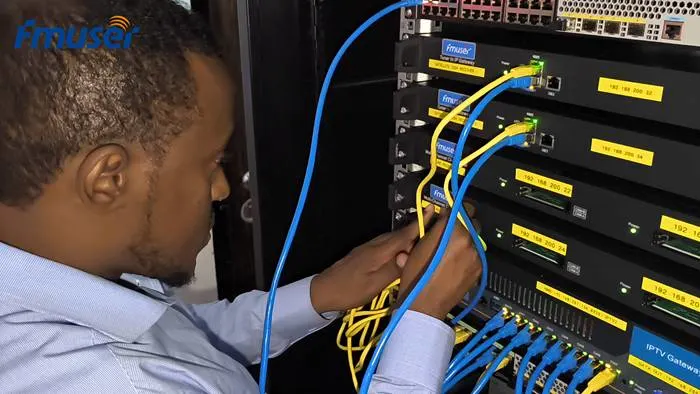
Both systems come with their unique pricing structures, which can significantly impact a hotel's budget and operational efficiency. Below is a breakdown of cost considerations for each system.
1) Cost Comparison Table
| Cost Factor | Cable TV System | IPTV System |
|---|---|---|
| Initial Purchase | High initial costs for equipment | Variable; some bundled with TV sets |
| Installation | Expensive cabling and labor | Generally lower installation costs |
| Monthly Subscription Fees | Constant and often high fees | Flexible; optional content subscriptions |
| Maintenance Costs | Ongoing costs for equipment upgrades | Generally lower; fewer hardware demands |
| Hidden Costs | Potential for unexpected fees | More transparent pricing |
2) Cable TV System Costs
- Initial Purchase: The initial investment for a cable TV system can be quite substantial. Hotels must purchase set-top boxes, coaxial cables, and other equipment. Plus, aging infrastructure may require costly upgrades to support current technology.
- Installation: Installation can add to the financial burden. Running new cables or upgrading existing ones involves labor costs, which can escalate quickly, especially for larger hotels.
- Monthly Subscription Fees: One of the biggest ongoing expenses for hotels using cable TV is the monthly subscription fees for channel packages. These fees can be significant, and the costs tend to be constant without much room for negotiation.
- Maintenance Costs: Cable systems often require ongoing maintenance to keep the equipment running smoothly. As technology ages, the costs for upgrades can add up, leading to budget strain.
- Hidden Costs: Many hotels encounter hidden costs related to cable TV, such as unexpected fees for additional channels or maintenance services. These can catch hotel operators off guard, impacting their bottom line.
3) IPTV System Costs
- Initial Purchase: The initial costs for an IPTV system can vary widely. Some systems may be bundled with new smart TVs from major suppliers like LG or Samsung, lowering upfront expenses. However, independent systems like the FMUSER IPTV system offer tailored solutions with flexible pricing.
- Installation: Generally, installation costs for IPTV systems are lower. With the ability to use existing CAT6 network cables that support various services, the installation process can be much simpler and faster.
- Monthly Subscription Fees: IPTV provides a more flexible approach to subscription fees. Hotels can choose between free and paid channels, allowing for significant cost savings. There are no constant content subscription fees, making budgeting easier.
- Maintenance Costs: Maintenance tends to be less demanding for IPTV systems due to fewer hardware components. This can result in lower overall maintenance costs compared to traditional cable systems.
- Hidden Costs: IPTV systems often come with more transparent pricing models, reducing the likelihood of unexpected costs. This clarity can help hotel operators plan their budgets more effectively.
Choosing between cable and IPTV is not just a financial decision; it also has emotional and operational ramifications. Hotels often face pressure to meet guest expectations while managing budgets. The constant monthly fees associated with cable can lead to anxiety for hotel managers, making them feel trapped in a system that could be more cost-effective. On the other hand, IPTV offers a sense of freedom and flexibility. The ability to customize channel offerings and the potential for lower costs can make it an attractive option for hotel operators looking to enhance guest satisfaction without breaking the bank.
Interested in More? Contact us Here!
Equipment
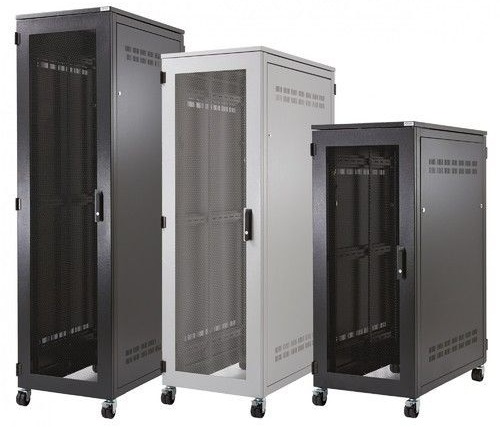
When it comes to hotel TV systems, the hardware plays a crucial role in determining the functionality and user experience of both cable TV systems and IPTV systems. Understanding the equipment involved can help hotel operators make informed decisions on which system to implement.
1) Hotel Cable TV System Equipment List
Cable TV systems rely on a series of specialized hardware components that work together to deliver television programming. Here’s a breakdown of the essential equipment used in cable TV systems:
- Headend Server: This is the central hub of the cable system, where signals are received from various sources and processed. It distributes content to the entire network.
- Modulators: Modulators convert digital signals into analog signals that can be transmitted via coaxial cables. They ensure that the signals are compatible with traditional TV sets.
- Encoders: These devices compress and encode video content for transmission. They allow for more efficient use of bandwidth, enabling more channels to be sent over the same infrastructure.
- Decoders: Decoders are used at the receiver end to convert the incoming signals back into viewable content. They decode the video and audio signals for playback on the TV.
- Multiplexers: Multiplexers combine multiple signals into one, allowing the efficient use of bandwidth. They make it possible to send multiple channels over a single transmission line.
- Routers/Switches: These are essential for directing data traffic within the network, ensuring that signals reach the appropriate locations effectively.
- Distribution Amplifiers: These amplifiers are used to boost the signal strength for long cable runs, ensuring that all guests receive high-quality programming.
2) How Hotel Cable TV System Works?
The hotel cable TV system operates through a series of interconnected components designed to deliver television programming efficiently to guests. At its core is the Headend Server, which serves as the central hub, receiving signals from various sources and processing them for distribution across the network. Modulators play a crucial role by converting digital signals into analog format, ensuring compatibility with traditional TV sets.
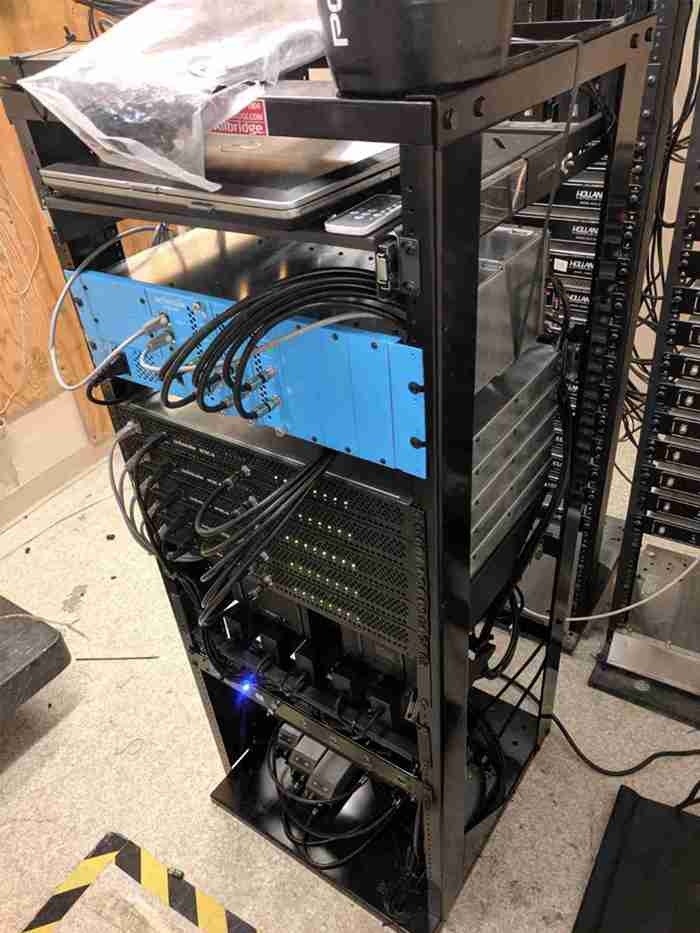 |
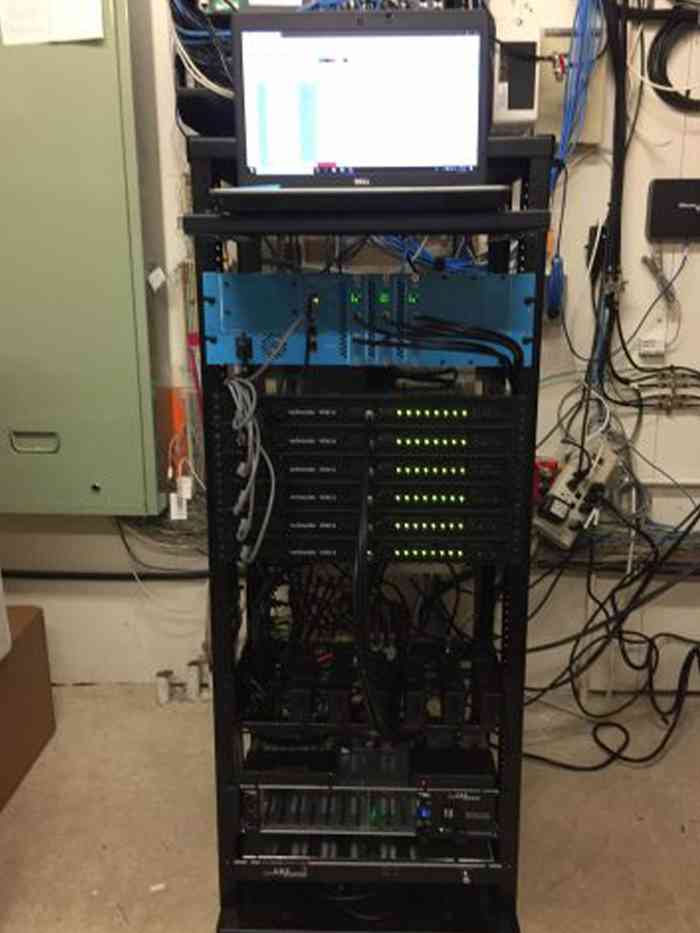 |
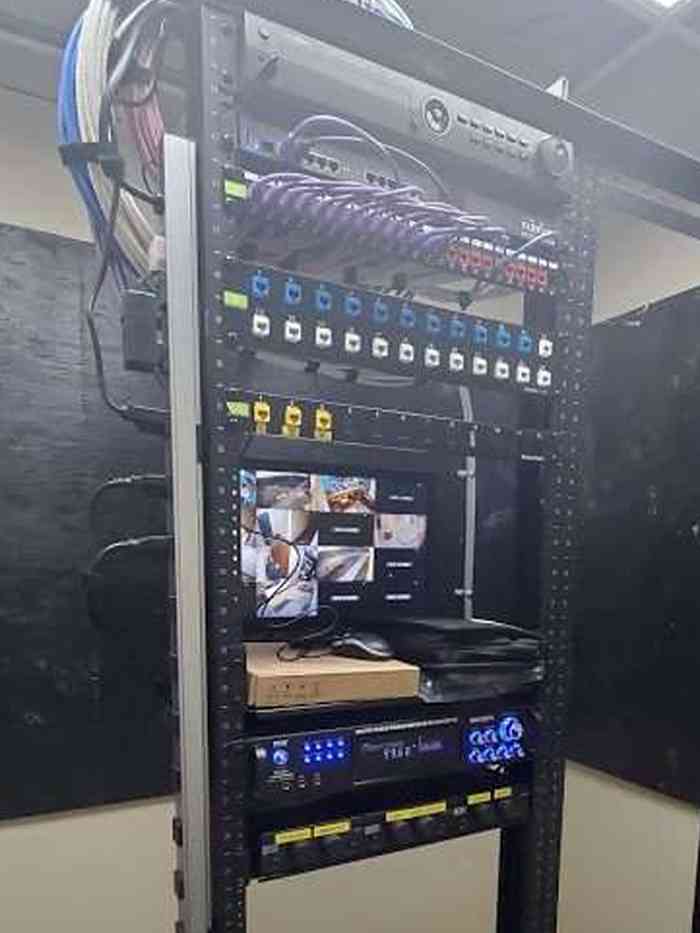 |
To optimize bandwidth usage, Encoders compress and encode video content, allowing for the transmission of multiple channels over the same infrastructure. At the receiver end, Decoders convert incoming signals back into viewable content, enabling seamless playback on guest televisions. Multiplexers combine multiple signals, enhancing bandwidth efficiency by allowing several channels to be sent through a single transmission line. Routers and Switches are essential for managing data traffic within the network, ensuring that signals reach their intended destinations without delays or interruptions.
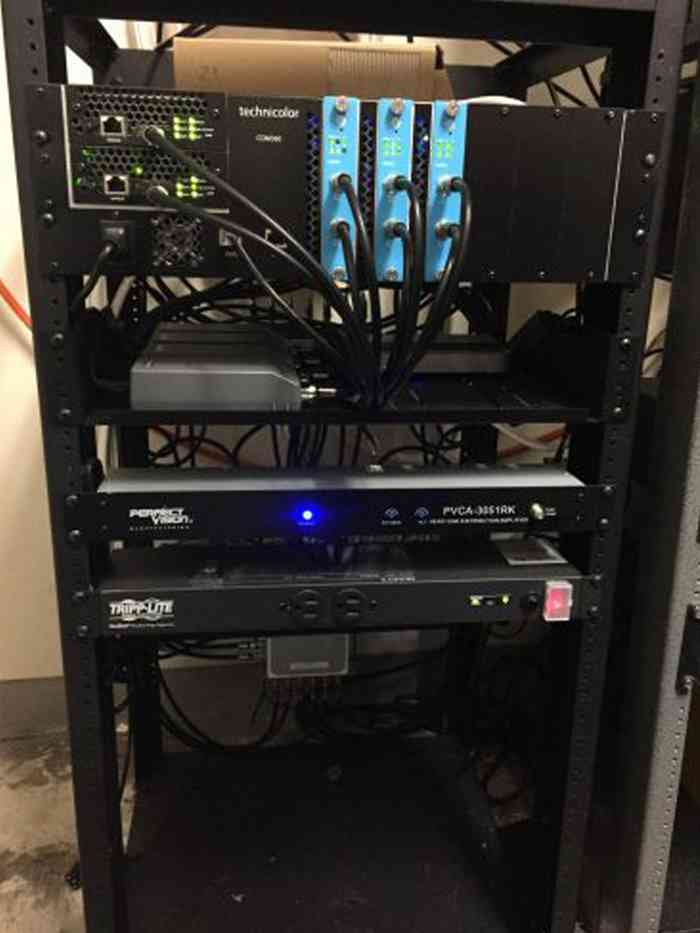 |
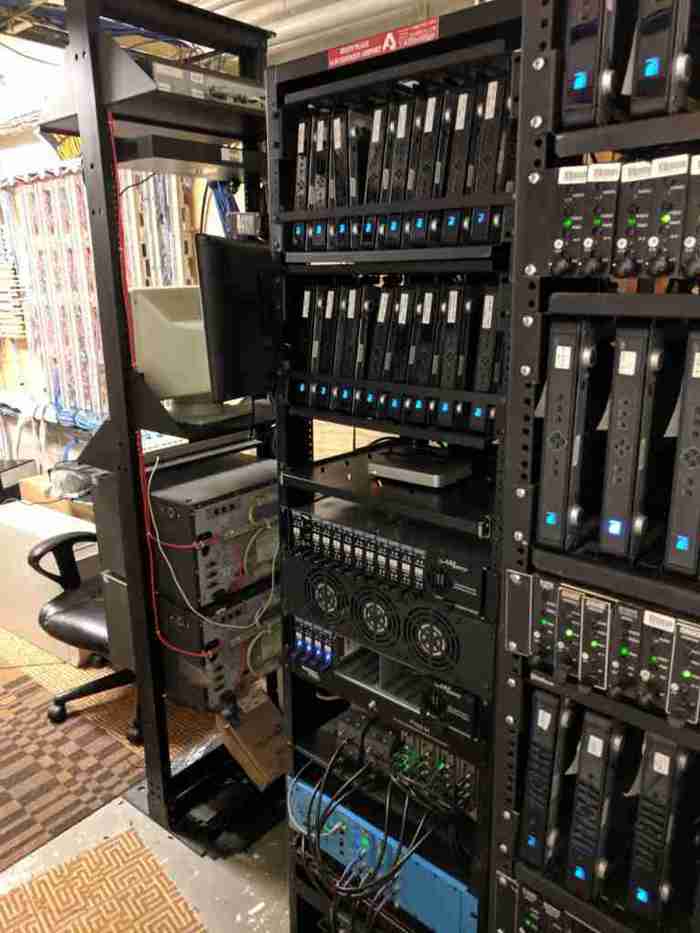 |
Finally, Distribution Amplifiers are utilized to boost signal strength over long cable runs, guaranteeing that all guests receive high-quality programming regardless of their location within the hotel. Together, these components form a reliable and effective cable TV system that has served the hospitality industry for decades.
Interested in More? Contact us Here!
3) Hotel IPTV System Equipment List
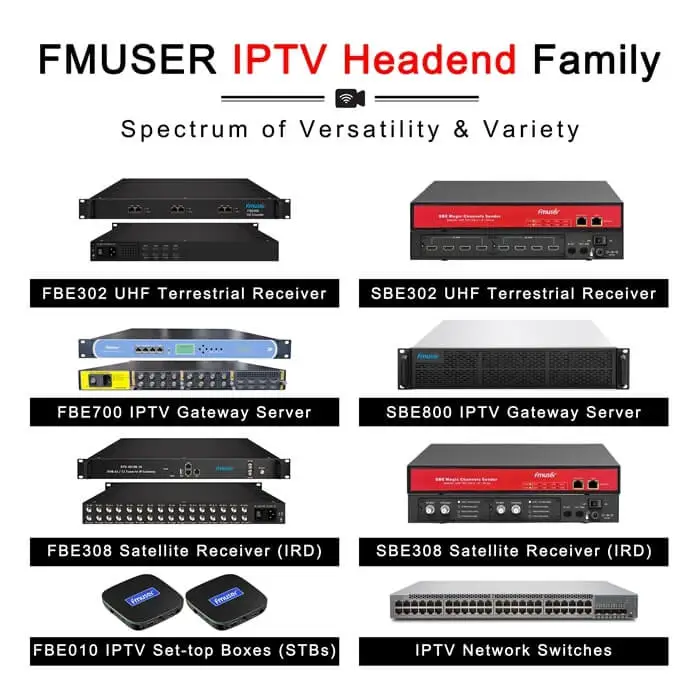
IPTV systems, such as FMUSER’s hotel IPTV system, utilize a different set of hardware - most of them are IPTV headend equipment, to efficiently manage cotnent distributiton and delivery, no matter itis for RF to IP, or IP to IP, manage content delivery. Here’s an overview of the key components:
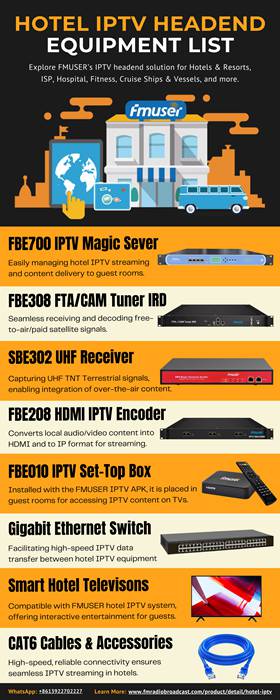 |
|
|
Clike here to download full images. Follow us on Pinterest. Weekly Updates! |
Interested in More? Contact us Here!
4) How Hotel IPTV System Works?
FMUSER’s hotel IPTV system is built on a robust set of hardware components that leverage internet technology for seamless content delivery.
| FMUSER Hotel IPTV System Mastery From Beginner to Expert | |
|---|---|
|
Clike here to download full images Follow us on Pinterest. Weekly Updates! |
At the core is the FBE700 IPTV Server, which acts as the backbone of the system, efficiently storing and streaming video content to connected devices in real-time. The FBE308 Tuner IRD (FTA/CAM) receives signals from various sources, converting them into a format suitable for IPTV distribution, while the SBE302 UHF Receiver captures UHF signals to ensure guests have access to a comprehensive selection of programming.
To maintain high video quality, the FBE208 HDMI Encoder converts analog video signals into digital format for efficient transmission over the network. Interactivity is enabled through the FBE010 IPTV Set-Top Box, which connects to guest TVs, allowing users to browse channels, access on-demand content, and navigate through the hotel’s digital services.
Additionally, depending on specific hotel needs, supplementary equipment such as user interfaces, middleware for content management, and network switches may be integrated into the system to enhance functionality and performance.
Together, these components create a dynamic and flexible IPTV solution that elevates the guest experience and streamlines hotel operations. |
|
Clike here to download full images Follow us on Pinterest. Weekly Updates! |
|
Interested in More? Contact us Here!
Functions
When it comes to hotel TV systems, the functions they offer can dramatically impact the guest experience and the overall efficiency of hotel operations. In this section, we’ll compare the features of IPTV systems with the limitations of cable TV systems, showcasing how each affects daily hotel life and guest interactions.
1) Comparative Functions
| Function | Cable TV Systems | IPTV Systems |
|---|---|---|
| Interactivity | Limited to basic channel switching, pause, and rewind. | Highly interactive with on-demand content, hotel services, and personalized options. |
| Content Access | Pre-defined channels with little choice. | Extensive choice including video on demand (VOD), live TV, and custom selections. |
| Guest Engagement | Minimal; mainly passive viewing experience. | Enhanced engagement through interactive features like welcome messages and surveys. |
| Customization | Fixed channel lineup; difficult to adapt. | Flexible customization allowing hotels to tailor content and branding. |
| Operational Efficiency | Requires more staff for service requests. | Paperless operations with features like digital menus and call-free services. |
2) Guest Experience
Imagine this: A family checks into a hotel after a long day of travel. They flip on the TV, and with cable TV, they can choose from a limited selection of channels. The kids might enjoy a few cartoons, but once they get bored, they find themselves stuck without options. The parents may have to call the front desk to order room service, interrupting their relaxation time.
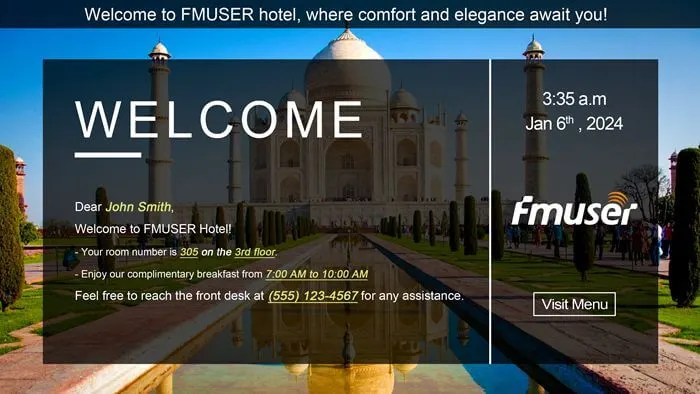
Now, picture the same family in a hotel equipped with FMUSER’s IPTV system. As soon as they turn on the TV, they are greeted with a sleek interface showcasing welcome messages and personalized recommendations. They can access a library of movies and shows on-demand, ensuring everyone finds something they enjoy. The parents can browse an interactive menu to order food and beverages directly from their room without needing to make a call. The entire experience feels seamless and convenient.
Interested in More? Contact us Here!
3) Hotel Management Benefits via IPTV
For hotel management, the differences in functionality are just as significant. With cable TV, hotel staff may find themselves inundated with service calls for channel issues or room service orders. This can lead to inefficiencies and increased labor costs.

In contrast, IPTV systems offer a range of features that streamline operations:
- Paperless Food and Beverage Management: With interactive menus available on the TV, guests can place orders directly, reducing the need for phone calls and minimizing errors.
- Live TV and Video on Demand (VOD): IPTV provides a broad selection of content, ensuring that guests have access to the latest movies and shows without any additional monthly fees.
- Call-Free Hotel Services: Guests can access information about hotel amenities, book services, or even request housekeeping—all from the comfort of their room. This not only enhances guest satisfaction but also reduces the burden on hotel staff.
Interested in More? Contact us Here!
4) Hotel Branding Benefits via IPTV
Implementing a hotel IPTV system offers significant branding advantages that can enhance a hotel's reputation and guest experience.
 |
 |
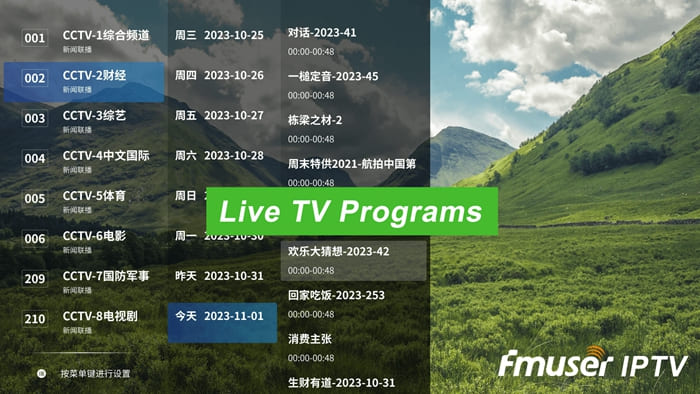 |
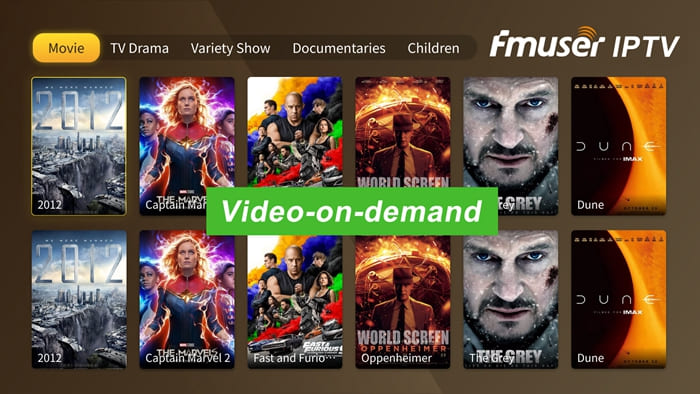 |
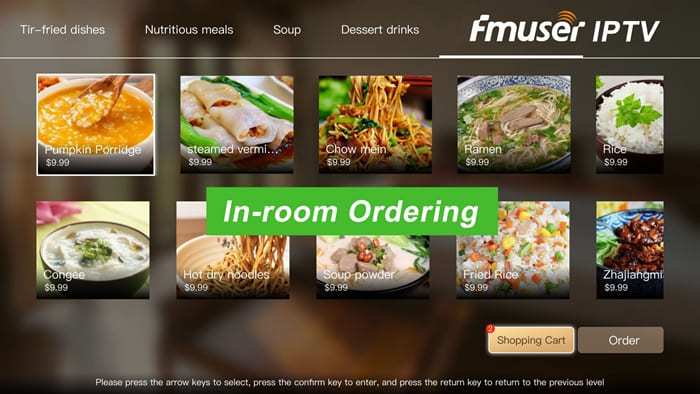 |
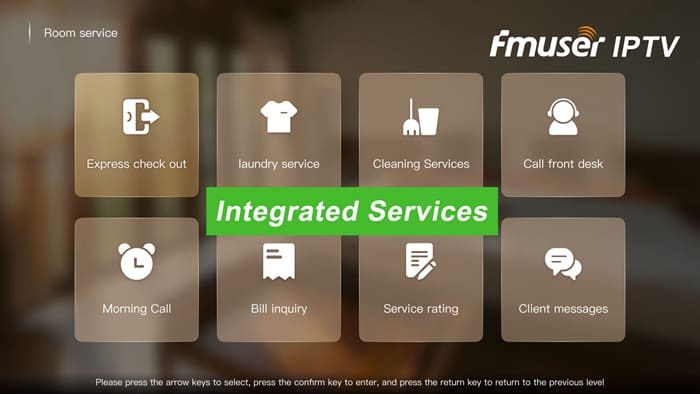 |
- Welcome messages: One of the standout features is the ability to display welcome messages and notifications directly on guest room TVs, which can be tailored to communicate important information, such as newly opened facilities or special events happening within the hotel. This not only keeps guests informed but also conveys a sense of care and attentiveness, emphasizing that the hotel is dedicated to providing more than just accommodation.
- Strategic Logo Positioning: advanced hotel IPTV systems like FMUSER’s allow for strategic logo positioning throughout the interface. Hotels can place their logos prominently on the IPTV menu or have them displayed when the TV is turned on. This constant visibility reinforces brand recognition and helps create a cohesive identity that guests associate with their stay.
- Customizable Backgrounds: the background displayed upon system initialization can be customized with images or videos chosen by the hotel. Captivating visuals can make a strong first impression, setting the tone for the guest experience and ensuring that the hotel’s branding appeals to visitors from the moment they arrive.
- Enhanced VOD Library: Hotels can also leverage video on demand (VOD) libraries to upload original content that showcases their history, values, and unique offerings. By sharing hand-made videos that tell their story or highlight services, hotels can build trust with guests and foster a deeper connection. This form of storytelling not only enhances the guest experience but also reinforces brand loyalty.
- Consistent Branding Power: these branding opportunities extend beyond guest rooms. With an IPTV system integrated throughout various hotel facilities—such as fitness centers, restaurants, and bars—branding can be consistently communicated in all areas of the hotel. Whether it’s through digital menus, promotional videos, or interactive displays, guests will continuously be reminded of the hotel's brand, further enhancing its visibility and appeal.
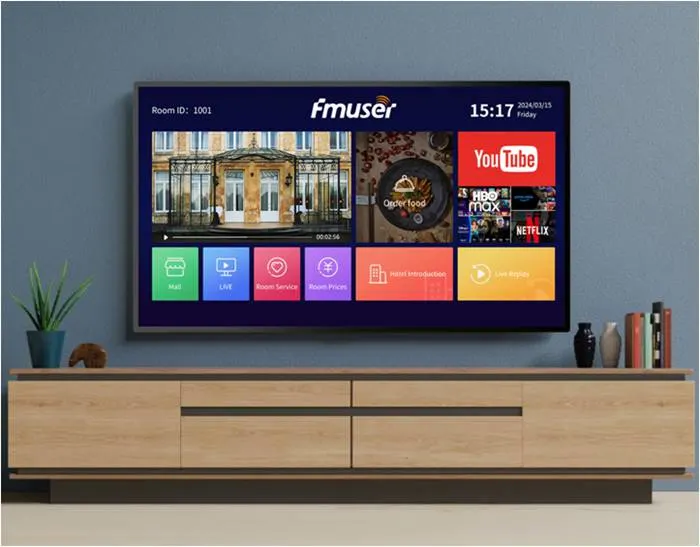
While cable TV systems offer basic functionality that may suffice for some guests, they fall short in providing a truly engaging experience. The limitations in interactivity and content access can detract from a hotel’s ability to meet modern guest expectations. Conversely, IPTV systems like FMUSER’s provide an extensive array of features that enhance guest engagement, streamline operations, and ultimately elevate the overall hotel experience. By opting for IPTV, hotels can transform their entertainment offerings into a dynamic, interactive experience that meets the needs of today’s tech-savvy travelers.
Interested in More? Contact us Here!
Customization
When selecting a hotel TV system, flexibility is a critical consideration. Hotels vary significantly in size and branding, and a one-size-fits-all approach can lead to challenges down the road.

1) Cable TV Systems
- Low Flexibility: Once a cable TV system is installed, making significant adjustments is often a cumbersome and expensive process. Hotels are typically locked into a fixed channel lineup, making it difficult to adapt to changing guest preferences or market trends.
- Branding Limitations: With cable TV, branding opportunities are limited. Hotels may want to display their logo or promotional content on the TV interface, but cable systems usually do not allow for such customization. This can hinder a hotel's ability to create a cohesive branding experience.
2) IPTV Systems
- Highly Flexible: In contrast, FMUSER's hotel IPTV system offers exceptional flexibility. Hotels can easily upgrade both software and hardware components, allowing for the addition of more TV channels or features as needed. For example, a hotel anticipating an influx of guests for a local event can quickly expand its offerings to include popular channels or on-demand content.
- Custom Branding Options: IPTV systems allow for seamless integration of hotel branding. Hotels can personalize the user interface by displaying their logos, promotional materials, or even real-time information about hotel services. For instance, a hotel can showcase its restaurant's daily specials directly on the IPTV menu, enhancing guest engagement and satisfaction.
Interested in More? Contact us Here!
Compatibility
Compatibility with other hotel systems, such as Property Management Systems (PMS), is limited in cable TV setups. If a hotel wants to integrate its TV system with a PMS for streamlined operations, it may face significant hurdles, often requiring costly equipment upgrades or complete overhauls.
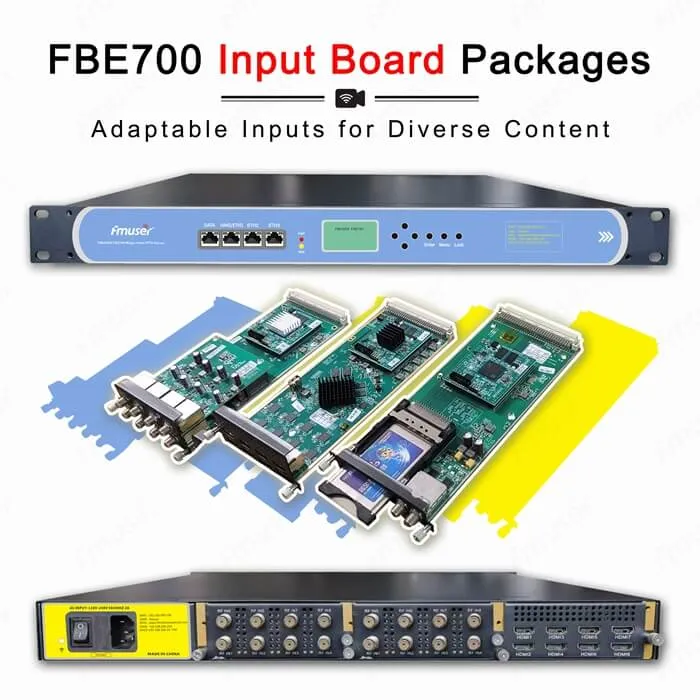
IPTV stands out by being easily integrable with various hotel management systems. This compatibility allows hotels to create a cohesive guest experience. For instance, a hotel can link its IPTV system with the PMS to facilitate features like automated check-in/check-out options displayed on the guest’s TV, or even room service ordering directly through the IPTV interface.
Interested in More? Contact us Here!
Future Upgrades
If a hotel decides to expand or change its offerings, upgrading a cable TV system usually means replacing large portions of the hardware, which can be both time-consuming and costly. This can lead to service interruptions and guest dissatisfaction.
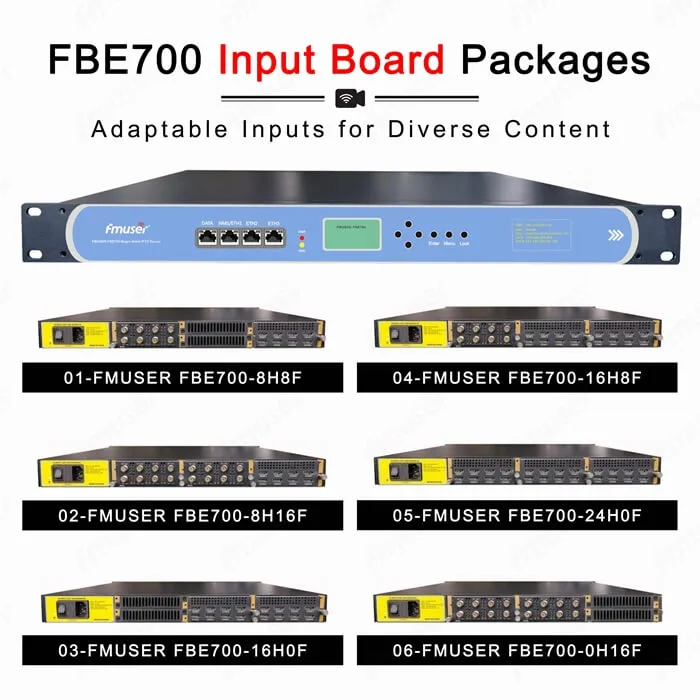
With IPTV, the process is much simpler. Adding new channels or features can often be accomplished with a few clicks, without the need for extensive hardware changes. For example, if a hotel wants to add streaming services like Netflix or Hulu, it can do so quickly and efficiently, keeping guests happy and engaged.
Interested in More? Contact us Here!
Last Words
As we wrap up our exploration of IPTV vs. cable TV systems for hotels, it’s clear that the future of hotel entertainment lies in the flexibility, interactivity, and customization offered by IPTV solutions.
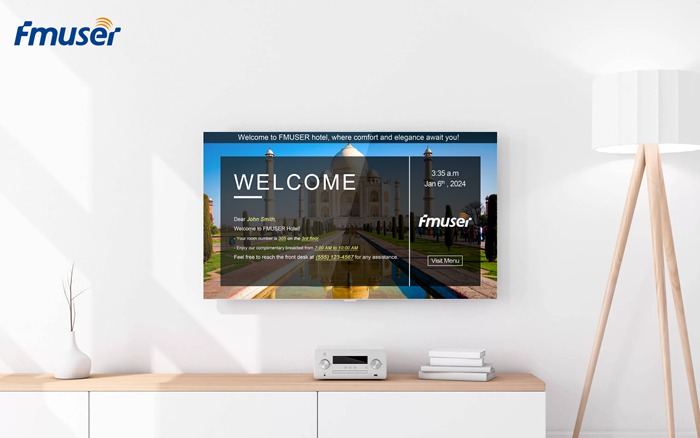
Here’s a quick recap of the key points we've discussed:
- Technology Overview: IPTV represents the next generation of hotel TV systems, offering advanced features that enhance the guest experience compared to traditional cable systems.
- Cost Considerations: While cable TV systems come with high upfront costs and ongoing subscription fees, IPTV systems provide a more affordable, one-time payment structure with optional subscriptions.
- Hardware Differences: IPTV systems leverage modern technology, allowing for easier upgrades and maintenance compared to the often cumbersome cable TV setups.
- Functionality: IPTV systems offer a range of interactive features, such as video on demand, customizable content, and paperless hotel management, significantly improving guest satisfaction.
- Flexibility and Customization: Hotels using IPTV can easily adapt their offerings to meet guest needs and integrate seamlessly with other management systems for streamlined operations.
If you're considering enhancing your hotel's entertainment offerings, FMUSER hotel IPTV solutions are here to help. Whether you're a newly built hotel looking to implement IPTV from the start or an existing establishment wanting to transition from a traditional cable system at minimal cost, FMUSER has the expertise and resources to support your journey.
Don’t wait any longer—reach out to us today to discover how FMUSER can elevate your hotel’s entertainment offerings and keep your guests coming back for more!
Contents
Related Articles
CONTACT US


FMUSER INTERNATIONAL GROUP LIMITED.
We are always providing our customers with reliable products and considerate services.
If you would like to keep touch with us directly, please go to contact us
